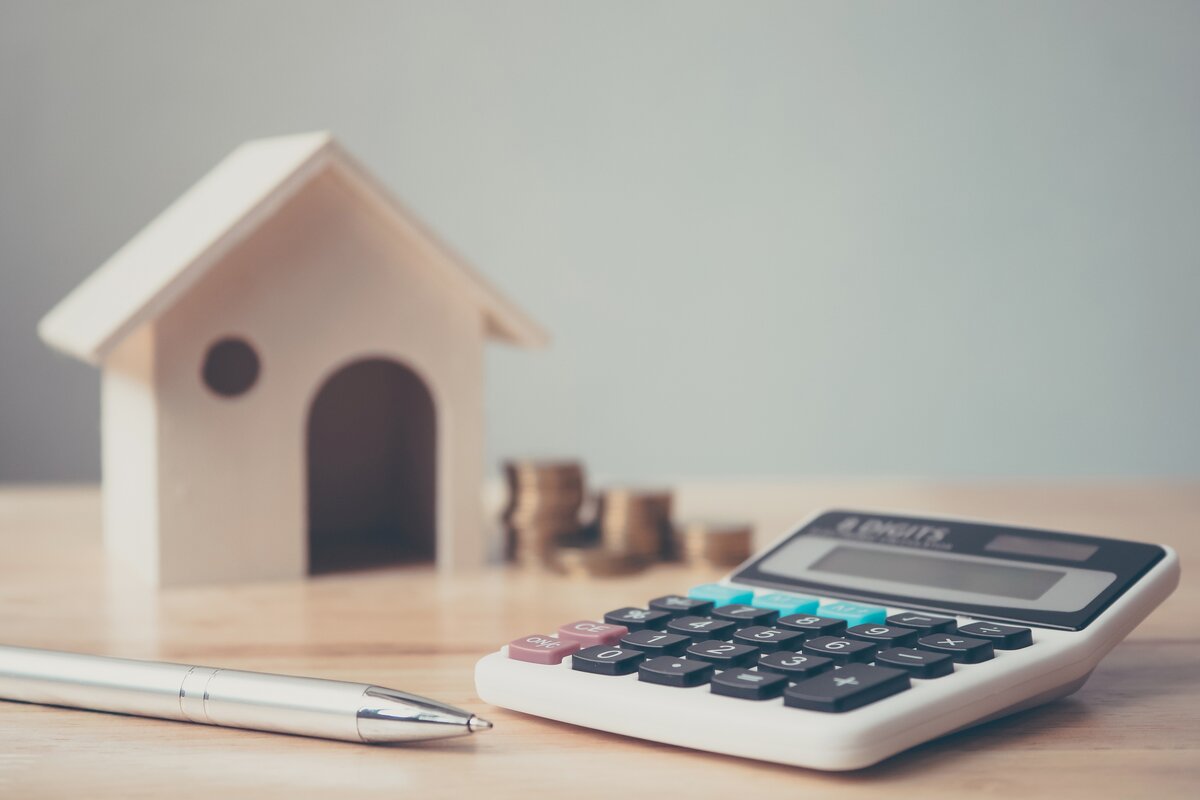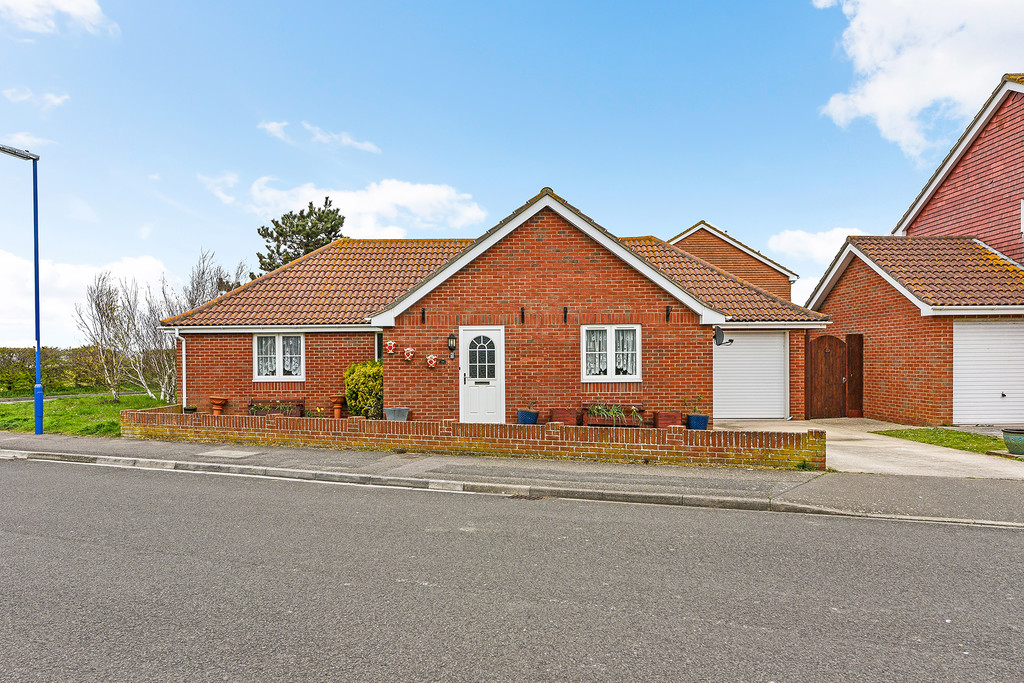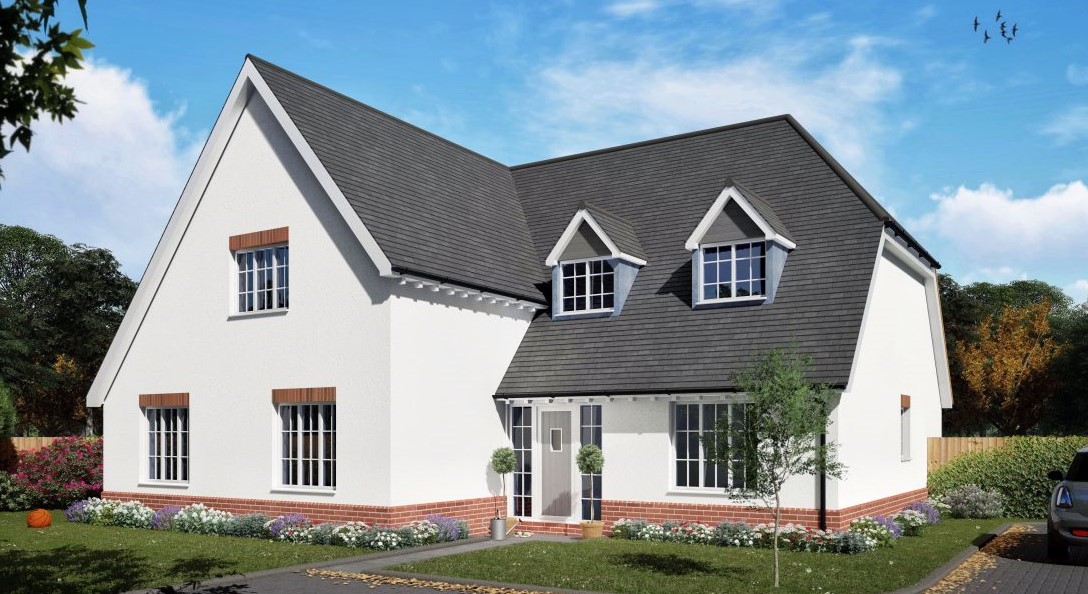What is a bungalow mortgage? Some people refer to the mortgage you’d get on a bungalow as a “bungalow mortgage”, but this actually makes it seem more complicated than it is. In reality, you’d get a normal mortgage on a bungalow, the same as you would on any other main residence, i.e. you don’t need a specific type of product to buy a bungalow. A bungalow is a one-storey, detached house, and a bungalow mortgage can be used to purchase homes that are located in both rural and urban areas.
If you're interested in purchasing a bungalow, there are a few things you need to know. We'll discuss the different types of bungalow mortgages and how to get one.
The Topics Covered in this Article Are Listed Below:
- What Is a Bungalow?
- What Are the Advantages of Buying a Bungalow?
- What Are the Disadvantages of Buying a Bungalow?
- Are Bungalows Good Investments?
- What Important Aspects Should You Consider When Buying a Bungalow?
- Types of Bungalow Construction
- What Adds Most Value to a Bungalow Property?
- Can Purchasing a Bungalow Property be a Good Choice for First Time Buyers?
- Further Classifications for Bungalows
- What Will a Lender Look for When Considering My Application for a Bungalow Mortgage?
- How Can an Independent Mortgage Broker Help Me Get a Bungalow Mortgage?
What Is a Bungalow?
A bungalow is typically a type of detached house – or sometimes semi-detached - that has a single storey and a sloped roof built on its own plot of land. Because bungalows are designed for easy living, they often have features like porches and large rooms that can be used for multiple purposes. In addition, bungalows usually have low-pitched roofs and wide eaves, which helps to protect the home from severe weather conditions.
While bungalows were originally designed for warm climates, they have since been adapted to suit a variety of locations and climates. No matter what their size or style, bungalows remain popular for their simple design and easy liveability.
What Are the Advantages of Buying a Bungalow?
There are several advantages to buying a bungalow, including the following:
- Costs: bungalows are often more affordable than other types of homes and they can require less maintenance. For these reasons, bungalows can be a great option for first time homebuyers or those seeking a more affordable option
- Space: because bungalows typically have a single storey, they often have larger rooms than other types of homes. This can be beneficial for small families or those who entertain often. Plus, as each room is close to the others, it can be easy to keep an eye on children or look after guests
- Aesthetics: bungalows often have a charming and inviting appearance. Their simple design can give them a timeless quality and their wide eaves and low-pitched roofs make them stand out in any neighbourhood
- Conversion opportunities: it's also worth thinking about conversion opportunities when it comes to bungalows. Because they often have a large footprint, there's the potential to convert them into 2 storey homes. This can be a great way to add value to your property and make it more spacious
- Outdoor space: another advantage of bungalows is that they often come with large gardens. This can be beneficial for those who enjoy spending time outdoors or families with children who need space to play
- Accessibility: bungalows can be an excellent choice for older people and those with reduced mobility, as you won't have to worry about stairs or other obstacles that other types of properties may present
What Are the Disadvantages of Buying a Bungalow?
While there are many advantages to buying a bungalow, there are also a few disadvantages which are worth considering:
- Less appealing to young buyers: one potential downside is that bungalows can be less appealing to young people. The single-storey design is often coveted by older generations
- Unsuitable for large families: bungalows may not be suitable for extended families that need more rooms. If you have a large family or plan on having many children, a bungalow might not be the best option
- Many are non-standard construction builds: because bungalows are often older homes, many of them aren't built to standard construction specifications This can make it a challenge to get a mortgage or find an insurance policy that covers the property. You may need to discuss Non-Standard Construction mortgages with your broker
- Outdated features and decor: another potential downside is that bungalows often come with outdated fittings and interior design. Often, they are older homes that haven't been updated in many years. If you're looking for a modern property, a bungalow might not be the right choice
Of course, each type of home has its own advantages and disadvantages, so it’s important to weigh all the options before making a decision. For many people, the advantages of bungalows make them an appealing choice.
Are Bungalows Good Investments?

Bungalows are good investments as they often appreciate in value at a higher rate than other types of homes, because they’re in high demand and developers don’t really build them anymore.
Bungalows can also be worthwhile investments if you're looking for a property to refurbish or a construction project. There are many outdated bungalows on the market that can be renovated and sold for a profit. If you have experience with developing or renovating properties, this can be a great way to make some extra money.
As there may also be an opportunity to extend upwards, you could end up with a very valuable property. However, it's important to remember that any construction project comes with risks and the need to meet building regulations. If you're thinking of taking on a bungalow renovation, be sure to do your research and speak to professionals before getting started.
What Important Aspects Should You Consider When Buying a Bungalow?
There are some important aspects you should consider when buying a bungalow:
- Conversion possibilities: you should consider conversion possibilities when buying a bungalow. Because they often have a single storey with a pitched roof, there’s often potential to convert them into 2 storey homes. A second storey can add value to your property and may be beneficial if you think you need more space in the future
- Need for renovations: another important aspect to consider is renovation work. Because bungalows are often older homes, they may require more repairs or updates than other types of homes. This is something you should factor into your budget when considering a bungalow purchase
- Construction materials: it's also important to be aware of the construction materials used in bungalows. As they're typically older buildings, they may have been built using less durable materials or materials that need to be replaced and may be classed as non-standard
- Date of construction: another important aspect to consider is when the bungalow was constructed. If it was built before 1970, it may not meet today's building code standards – e.g. it may have a back boiler instead of a modern day combi boiler
- Construction company: if you're considering buying a bungalow, it's important to research the construction company. Many older companies used materials and methods that are no longer up to code
- Previous repairs and renovations: it's also vital to research any previous refurbishments or renovations that have been carried out in the bungalow. This is particularly important if the bungalow you're buying was originally built with non-standard materials or methods, as proving that remedial works were undertaken can help you get a mortgage
Your findings should help you determine what category your bungalow falls into and help you find a suitable mortgage. Most bungalow properties will fall into one of the following categories below.
Types of Bungalow Construction
Woolaway Bungalows
A Woolaway bungalow is a prefabricated house with a concrete frame and concrete wall panels. Because they don't have cavity walls, the original construction might be difficult to heat. However, many have had the concrete walls replaced with traditional brickwork that may be heated.
Can You Get a Mortgage on a Woolaway Bungalow?
If you're considering taking out a Woolaway bungalow mortgage, you'll need to check for a PRC Certificate of completion, which demonstrates that it has been rebuilt with regular cavity walls according to official standards. Only a few specialists will consider mortgages on a Woolaway property without a PRC Certificate.

Colt Bungalows
A Colt bungalow is often considered a kind of "flat packed" property with a type of wood frame frequently used in self-build projects. These bungalows, unlike Woolaways, are very energy-efficient and simple to heat. Certain types of colt bungalows are even being marketed as "eco-homes". Some are totally built from timber, while others have a solid brick exterior. A bungalow of brick and block construction is considered to be more conventional.
Getting a Colt Bungalow Mortgage
While timber frame houses are deemed non-standard properties by many mortgage providers, more are being built as a result of their sustainability, and they're becoming increasingly popular with purchasers.
If the bungalow has a brick exterior and is properly insulated, more lenders will extend a mortgage offer, although rates may still be higher than average. A mortgage will be more difficult to obtain for Colt bungalows and other timber-frame homes with completely wooden exteriors.
Guildway Bungalows
During the mid-to-late 1950s, Guildway was a successful business that used prefabricated timber frames in bungalows sold across the UK.
Is a Guildway Bungalow Mortgageable?
If you want a mortgage on a Guildway bungalow, it's important to check that the property has been properly insulated and that any timber used meets current construction standards. As with Colt bungalows, more lenders are beginning to offer mortgages on Guildway properties, but rates may be higher than average.
Dorran Bungalows
These are another style of post-war bungalow built from prefabricated elements. Dorran bungalows generally featured precast concrete panels supported by iron pins.
Getting a Mortgage for a Dorran Bungalow
With a standard lender, Dorran houses may be difficult to mortgage because they're made of concrete and do not meet requirements for financing. They're generally regarded as unmortgageable unless the concrete has been replaced with normal bricks and a PRC Certificate can be produced. If you're looking for a Dorran bungalow mortgage, your best bet is to use an independent specialist mortgage broker.
What Adds Most Value to a Bungalow Property?
Several upgrades can significantly boost the value of a bungalow, depending on its location, condition, and buyer appeal. One of the most effective ways is adding extra living space: whether through a rear extension, conservatory, or loft conversion (if the roof allows). More usable space typically means a higher valuation.
Modernising the kitchen and bathroom can also make a big impact, as these are often key selling points. Energy efficiency improvements, such as new windows, insulation, or a more efficient heating system, not only make the property more appealing but can also help meet current EPC standards.
Kerb appeal shouldn’t be overlooked either. For example a tidy garden, fresh exterior paint, and a welcoming entrance can go a long way in creating a strong first impression.
Can Purchasing a Bungalow Property be a Good Choice for First Time Buyers?
Yes, buying a bungalow can be a smart option for first-time buyers, depending on your priorities and the local market. Bungalows often offer generous plot sizes and the benefit of single-storey living, which can appeal to those looking for a more manageable layout or future-proofing their investment.
They also tend to be easier to maintain and may offer potential for extensions or loft conversions which can add long-term value. That said, bungalows are sometimes in higher demand among downsizers and older buyers, which can drive up prices in certain areas.
If you find one in good condition and within your budget, a bungalow can offer a great balance of space, comfort, and long-term potential.
Further Classifications for Bungalows
As well as different construction types, there are a few additional classifications for bungalows.
Conservation Area Bungalows
Conservation area bungalows are located in areas of outstanding natural beauty or areas that are deemed to be of architectural importance. Because of this, they may be subject to additional planning permission regulations, so it's important to check the details with your local authority if you're looking to make any changes to the property.
Flood Risk Bungalows
Bungalows located in flood zones are considered to be at a higher risk of flooding and so obtaining a mortgage for a flood risk bungalow can be difficult. Most lenders will require additional security, such as a larger deposit, to cover the increased risk.
Bungalow Chalets

The term "bungalow chalet" refers to bungalows with upstairs bedrooms that are usually part of a converted loft. These can also be classed as "dormer bungalows" if dormer windows were added to make more room.
We’re often asked: "Can I get a mortgage for a chalet bungalow?" The answer to whether you can get a chalet bungalow mortgage depends on the type of construction. However, with the help of an independent mortgage broker, this process can be easier.
Park Home Bungalows
A park home, or lodge, is a form of bungalow that you may also come across. Regardless of the type of construction, these properties cannot usually be mortgaged because the site owner leases out the space. There may be some unusual exceptions, such as being able to buy the plot together with the property as a freehold purchase. However, this is uncommon.
What Will a Lender Look for When Considering My Application for a Bungalow Mortgage?

As with any mortgage application, a lender will look at several factors when considering whether or not to approve a bungalow mortgage, including the following:
- Your credit profile: this is a record of your financial history and is used by lenders to assess how you manage your finances and therefore your risk as a borrower. The higher your credit score as determined by the lender, the lower your risk as a borrower, and the more likely you are to be approved for a mortgage. If you have a poor credit history, you may still be able to get a mortgage, but the interest rate is likely going to be higher
- Your income: lenders will want to see evidence of your income in order to assess how much you can afford to repay each month. This includes items like your salary, any bonuses or commission you receive, and any other sources of regular income
- Your outgoings: to assess your affordability, lenders will also look at your regular outgoings. This includes commitments like your mortgage payments, credit card repayments and any other regular bills or expenses you have
- Your deposit: the size of your deposit will also be a factor in deciding whether or not to approve your mortgage. The larger your deposit, the lower your risk as a borrower, and the more likely you are to be approved for a mortgage. In general, lenders will look at up to 95% LTV (loan-to-value) for bungalows
- Your employment status: lenders will also want to see evidence of your employment status to assess your ability to repay the mortgage. If you're employed, they'll want to see evidence such as your contract of employment and your P60. If you're self-employed, they'll want to see paperwork, such as your last 2 years of tax calculations
- Your property: the type of property you're looking to buy will also be a factor in deciding whether or not to approve your mortgage. Listed buildings and non-standard construction properties, for example, are considered to be higher risk than standard properties. For this type of property, you may need to provide additional security
There are a number of factors that a lender will look at when considering your application for a bungalow mortgage. However, with the help of an independent mortgage broker, the process can become much easier.
How Can an Independent Mortgage Broker Help Me Get a Bungalow Mortgage?
As an independent mortgage broker, John Charcol has access to the whole market, which means we can find the best deal for you and look at specialist products for properties that may be difficult to mortgage. This also means that we can help you find mortgage offers even if you have bad credit or a low deposit.
Still not sure?
Here’s a breakdown of how John Charcol can be immensely helpful in securing a mortgage for a bungalow and other specialist situations:
- Access to multiple lenders - we work with a wide range of lenders, including banks, building societies and private lenders. We can help you access mortgage products from various institutions, giving you more options to choose from
- Tailored advice - a mortgage broker will assess your financial situation, including your income, credit score, and savings, to understand your borrowing capacity and financial goals. Based on this assessment, we can provide personalised advice on the most suitable type of mortgage for your needs
- Expertise and market knowledge - we’re experts in the mortgage market. We stay updated on current interest rates, mortgage products and lender policies. This expertise allows us to navigate the complexities of the mortgage process more effectively and find the best mortgage deals available for you.
- Saves time and effort - searching for a mortgage can be time-consuming and overwhelming, especially if you're not familiar with the process. We handle the research, paperwork, and communication with lenders on your behalf, saving you time and effort
- Guidance through the mortgage process - the mortgage process can be complex, with various steps involved from application to closing. A mortgage broker guides you through each stage of the process, explaining the requirements, gathering necessary documentation, and ensuring everything progresses smoothly
- Ongoing support - even after securing a mortgage, a mortgage broker can provide ongoing support and assistance. Whether you have questions about your mortgage terms, refinancing options, or changing financial circumstances, We here to help you navigate your mortgage journey
Overall, an independent mortgage broker can simplify the process of securing a bungalow mortgage, provide expert advice, and help you find the most suitable mortgage option tailored to your individual needs and circumstances.
We have nearly 50 years' experience in the mortgage industry and we're experts at helping people find the best mortgage options for all types of houses. Find out more about our bungalow mortgage services today by calling us on 0330 433 2927.
First-Time Buyer Mortgages
Discover the best first time buyer mortgage rates available and the latest advice from John Charcol: mortgage broker for first time buyers.
Applying for a Mortgage
Applying for a mortgage couldn’t be simpler with our easy and simple guide from application to accepting your offer.
How Much Can I Borrow?
This mortgage calculator examines your income and works out how much money a mortgage lender might provide you with
House Buying Mortgage Guide
Are you looking to buy your first home? Or perhaps want to move to a new area? Our step-by-step guide will tell you everything you need to know about buying a house.
Help to Buy Guide
Support from the government-backed Help to Buy initiative is available for first-time buyers and existing homeowners who are finding it difficult to move up the housing ladder.
Mortgage Deposit Calculator UK
Work out how much you need to save each month with our mortgage deposit calculator. Here you’ll also find information on how deposits work, amounts needed and more.
Mortgage Types
Our guide explains everything you need to know about the different types of mortgages, including: interest rates, features, repayment methods and more.
Where Can My Mortgage Deposit Come From?
Want to know where your mortgage deposit can come from? See our guide for information on legitimacy and which sources lenders deem acceptable and unacceptable.
House Mortgage Deposit
Saving a mortgage deposit for a house is definitely one of the biggest hurdles you face as a buyer. In our guide we explain how deposits work and ways you can save.
Mortgage Deposit Guide
How much deposit will you need for your mortgage? We explain how mortgage deposits work, what LTV is, how your deposit affects your mortgage and more.

